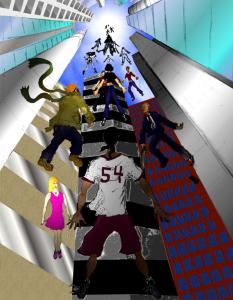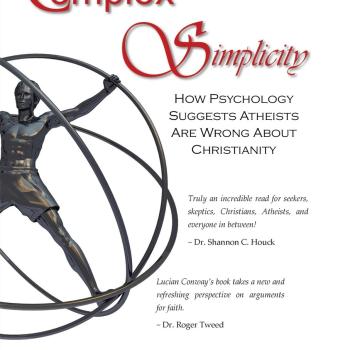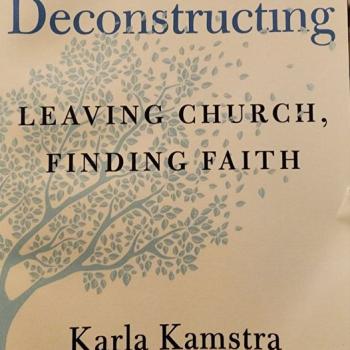A significant portion of my initial investigation into deconversion involved listening to interviews and reading stories from people who had left Christianity. When people talk about their exit, they talk about the various difficulties they had with religion, anxieties they felt, and various occurrences which were very emotional for them.
Many of these were very predictable: being forbidden to listen to certain music, watch certain movies, or even think certain thoughts. Much talk of “purity culture” and the effects it had on them.
Not so predictable, though, was a trend which orbited around a specific Christian doctrine known as the “Rapture.”
The End of Time
Many of my readers will be familiar with the idea of the Rapture, but allow me to synopsize it anyway:
Eschatology is a realm of religious thought which speculates on or establishes dogmas about the end of the world. The various sects of Christianity differ greatly about what to expect as the world comes to an end, but there are a few significant events which are generally agreed upon. The first of these is that Jesus, the Messiah, will return to earth. The second is that there will be a period of judgement during which a very literal apocalypse will ensue, full of suffering and woe. The final of these – and one of the most controversial – is an event during which Christians will be physically removed from the earth, called the “Rapture.” I say it is controversial, not just because Christians disagree where in the order of events it will occur, but also if it will occur. While many will show evidence that the Rapture is a very Biblical teaching, the concept itself did not make it into the theological lexicon until 1830 by a Scottish theologian.
Despite its relatively recent formation, the concept of the Rapture is accepted as dogma in a significant portion of conservative churches across America.
Rapture Teaching
Around the 1970s, end times teaching became a significant theme in Christian thought, with an author and speaker by the name of Hal Lindsey leading the conversation. A broad consensus began to occur which placed the order of events something like this:
- Christians will be Raptured away from the earth suddenly and without any forewarning
- A period of suffering and judgement will occur across the earth which makes the apocalypses of science fiction look like child’s play
- Jesus will return to earth
In the 1990s, this theological conversation was launched into pop culture with the release of a very popular book and movie series titled Left Behind. The fictional setting of the story presented a world in which the Rapture had recently occurred. The primary characters in the book and movies were only nominally Christian, but had not truly committed to Christian beliefs. Consequently, they witnessed their friends and family disappear along with all of the other Christians in the world, but they, themselves, were “left behind.” Alone in a world which had literally gone to hell, these characters had to wrestle with the implications of being left in a world with no Christians, wherein the world was being destroyed with catastrophe after catastrophe.
As a series of stories, it was very exciting and provocative. However to its Christian readers, it presented a very real threat: what if the rapture were to occur, and they were “left behind”?
Rapture Anxiety
Along with what was perhaps an over-emphasis on end times teaching in a sizable number of churches, the threat of being left behind was (and perhaps still is) taught explicitly from the pulpit. “The Rapture could occur at any moment, no one knows. If you have not fully committed, if you have any hidden sins or reservations, you may find yourself alone as the real Christians disappear around you. Get right with the Lord, or get left behind.”
It is a terrifying prospect for a religious adult, to say nothing of the children present to hear such a vivid message. It should perhaps be unsurprising that so many of the interviewees I listened to expressed their childhood anxiety at being left behind. More than simply sharing the same anxiety, the people who spoke about their fears of the rapture all exhibited very similar symptoms related to this anxiety.
Symptoms of Rapture Anxiety
Individuals who expressed their rapture anxieties found themselves praying for their salvation compulsively throughout the week. Again and again, they would tell God how sorry they were for all of their sins, and beg that he please save them.
When dedication calls were made in their churches, they would find themselves coming up to the front time after time for fear of not being “right” with God. Some would even go so far as to be baptized multiple times.
Children who suffered from Rapture Anxiety displayed a significant fear of being alone. Not only did they want to remain close to family and friends, they needed to be within eyesight of their significant others. This way, at least, they would be aware if the person suddenly disappeared and they were alone.
Relationship to Deconversion
Why is it that Rapture Anxiety showed up so frequently among those who spoke or wrote about their religious exit? Simply put: when one’s religion is a source of stress or anxiety, exiting that religion becomes a source of relief. It is worth bearing in mind that no deconvert in these interviews identified the rapture anxiety as the specific cause of his or her deconversion, and likely it was not. However, it may be part of a long list of things which made their religious beliefs less desirable than they otherwise might have been.














